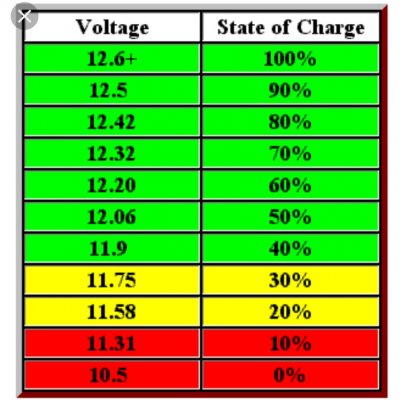RVMommaTo6
Well-known member
It's amazing how much I didn't know that I didn't know! Lol, but seriously, you guys are the greatest. I think my first mistake was not coming on here right away, I searched manuals for a good hour first and not NO answers. I'm sure you're all right. We've been driving now for about 3 hours and everything looks back to normal. I didn't charge them while we were boondocking, I won't do that again. It was our first time boondocking in one place. We've spent nights here and there but were driving and on the move so this hadn't happened before. Now I know not to trust that LED panel so much. My batteries don't refill with water. I have 2 Marine batteries, group size 24MS. I'm not too concerned about them if they can get me a night or two boondocking at a time. I can charge them more often as well. I wasn't doing that. If they quit on me, I'll get new ones (asking here first of course) but if they can hold on a little longer, I'll wait on that.
And Gizmo, I have GOT to start taking your advice!!!
And Gizmo, I have GOT to start taking your advice!!!

